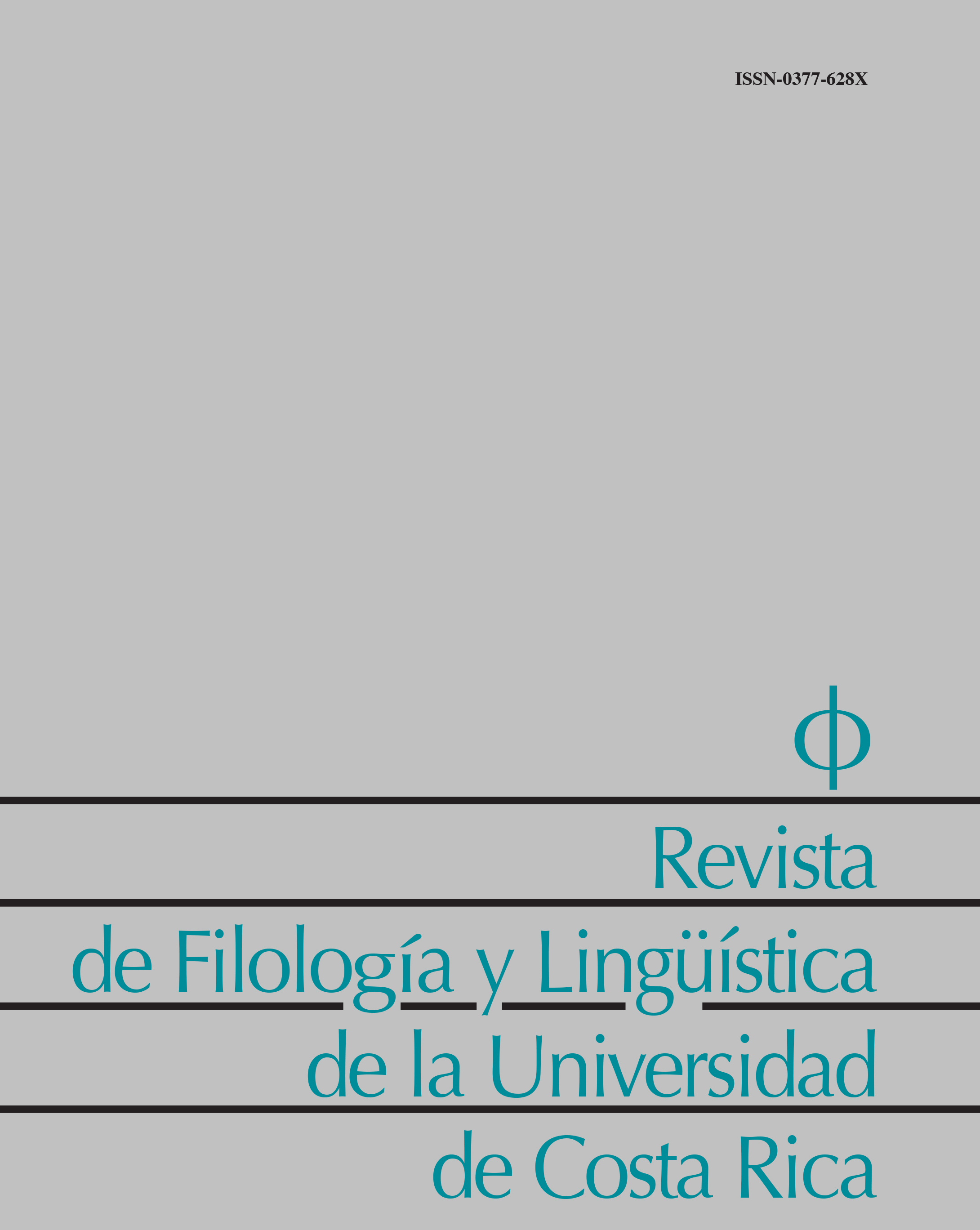Abstract
The paper offers a comparison between two embassy speeches: Odysseus, in the Greek Epics (Il. IX, 225-306); and Kṛṣṇa, in the Sanskrit Epics (MBh. V. 122,6-122.61). For each one, the embassy as a historical practice is contextualized in its respective tradition of diplomacy and hospitality, the argumentation is analyzed based on the cultural values, and the ideology regarding war and peace is contrasted. Lo Cascio’s (1998) methodological proposal on the “Grammar of Argumentation” is followed. These conclusions are drawn: both speeches follow the diplomatic practice; both are based in values that are typical of the culture in which they are inscribed, but fail to convince their addressee due to a difference regarding the hierarchy; and, while in the Iliad war is idealized, in the Mahābhārata so is peace.
References
Apte, V. (1958). The Practical Sanskrit English Dictionary. Poona: Prasad Prakashan.
Basham, A. (1956). The Wonder that Was India. London: Sidgwick and Jackson.
Basham, A. (1966). La vida social de la India antigua. Estudios Orientales, 1 (2), 24-36.
Berenguer, J. (2002). Gramática griega. Barcelona: Bosch.
Dhingra, G. (1976). Juego cósmico. Caracas: Monte Ávila.
De Sousa e Silva, M. F. (2005). Ilíada, um terreno de glória. Minerva: Revista de Filología Clásica, 17, 25-38.
Garbutt, K. (2008a). Mahabharata. Book Five. Preparations for War. Volume One. New York: Clay Sanskrit Library.
Garbutt, K. (2008b). Mahabharata. Book Five. Preparations for War. Volume Two. New York: Clay Sanskrit Library.
Gonda, J. (1982). Gramática elemental de la lengua sánscrita. México: El Colegio de México.
Griffin, J. (2004). Homer. Iliad IX. Oxford: Clarendon Press.
Hiltebeitel, A. (2010). Mapping Bhakti through Friendship in the Sanskrit Epics. En: Pollock (Ed.) Epic and Argument in Sanskrit Literary History (pp. 91-116). New Delhi: Manohar.
Hoces, A. (1987). La hospitalidad en Homero. Gerión, 5, 43-56.
Kalyanov, V. (1979). On Kṛṣṇa’s Diplomatics in the Mahābhārata. Indologica Taurinensia, 7, 299-308.
Larrañaga, H. (1991-92). Aquiles, héroe de héroes. Revista de Estudios Clásicos, 22, 65-107.
Lo Cascio, V. (1998). Gramática de la argumentación. Madrid: Alianza.
MacDonell, A. (1965). A Practical Sanskrit Dictionary. Oxford: Oxford University Press.
Monier-Willimas, M. (2008). Sanskrit-English Dictionary. New Delhi: Munshiram Manoharlal.
Monro, D. y Allen, T. (Eds.). (1920). Homeri opera, Tomus I. Oxonii: Typographeo Clarendoniano.
Montes, M. (2007). Formas de deconstrucción social en la Ilíada: el enfado y la ira. CFC: Estudios Griegos e Indoeuropeos, 17, 77-96.
Mosley, D. (1965). The Size of Embassies in Ancient Greek Diplomacy. Transactions and Proceedings of the American Philological Association, 96, 255-266.
Nagy, G. (1999). The Best of the Achaeans. Maryland: The Johns Hopkins University Press.
Navarro, F. (2000). La Retórica del discurso: La Cohortatio. Tradición clásica y pervivencia. Cuadernos de Filología Clásica, 19, 79-124.
Pathak, S. (2006). Why Do Displaced Kings Become Poets in the Sanskrit Epics? Modeling Dharma in the Affirmative Rāmāyaṇa and the Interrogative Mahābhārata. International Journal of Hindu Studies, 10 (2), 127-149.
Tola, F y Dragonetti, C. (2008). Filosofía de la India. Barcelona: Kairós.
Van Buitenen, J. (Trad.). (1978). The Mahābhārata. 4. The Book of Virāṭa. 5. The Book of the Effort. Chicago: The University of Chicago Press.
Vidal-Naquet, P. (2002). El mundo de Homero. Barcelona: Península.
Zimmer, H. (1965). Filosofías de la India. Buenos Aires: EUDEBA.

